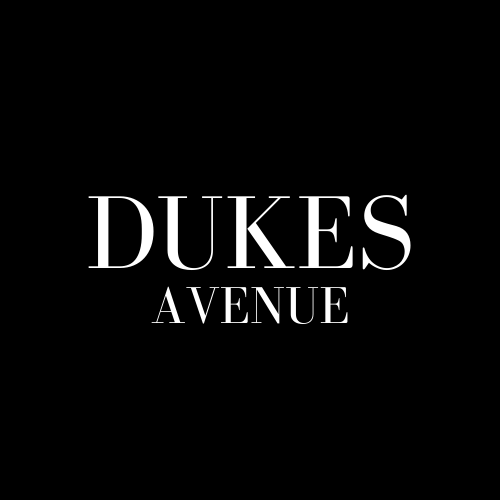Is it too late to start a blog? A question I both see and receive all the time and given the current climate, I thought it might be worth writing about. If you are reading this in the future, know that this article was published in March 2020 (but will likely be updated as time passes). I don’t want to mention the dreaded C-word that has got us all cooped up at home at present, just because it’s all we are hearing about at the moment. I do, however, want to answer this question, and my response is long enough that it warrants a full length article.
Why now? Well, a lot of us now have spare time on our hands whilst on lock down at home, so it felt like a good time. Many are thinking about doing the things that they have wanted to do for a while, but just never found the time for. Starting a blog seems to be one of those things! Many hold back for the simple reason that there are so many but (spoiler alert) I’m here to tell you there is definitely room for one more – yours. If you feel ready to take the plunge, here is a quick step-by-step guide to get you up and running during this troubling period.
This article contains affiliate links
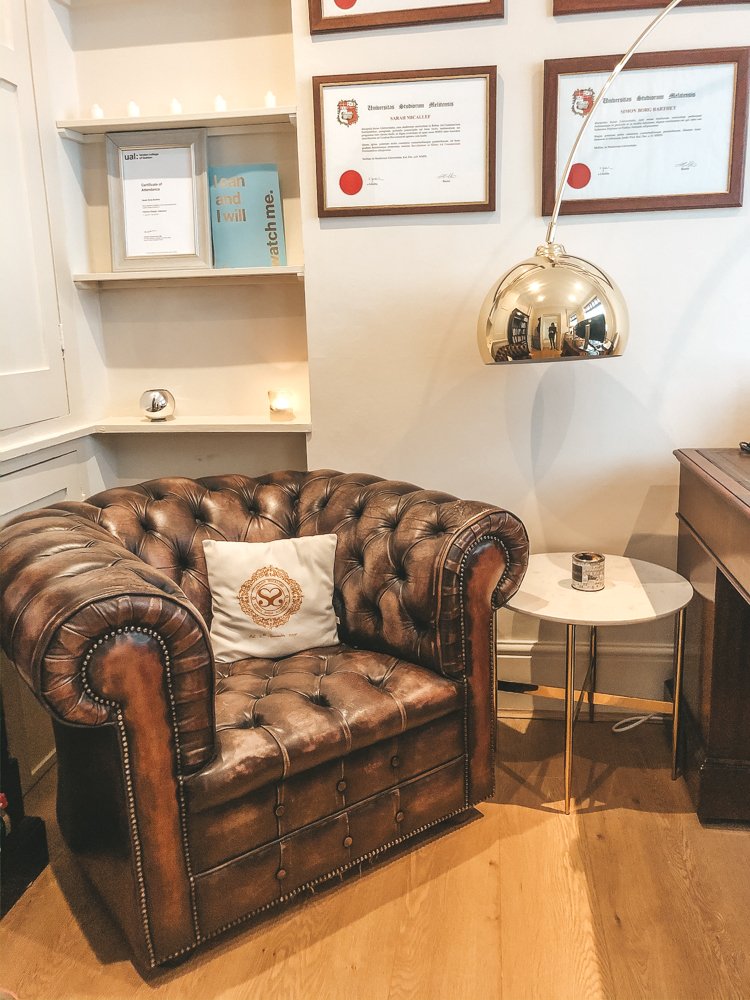
Facts About Blogging
I want to take it right back to basics, before blogging became a viable career choice and before many jumped on the blogging bandwagon (in the hopes of making money by the bucket load). What it is, essentially, is an online journal or (even more so now) informational website, where blog posts are published in a reverse chronological order. It started as a platform where the writers (‘bloggers’) could share their views on a particular subject, almost like an online diary. Over time, it has become so much more than that, with many going to blogs to learn about something new – be it a product or service, or even a travel guide.
Things have changed dramatically since they first made their appearance online in the early 90s. There are plenty of success stories out there of bloggers who have built a lucrative business out of something that initially started as a passion project. And this is absolutely amazing – amazing how anyone can build an empire that started off with just a laptop and a vision. It has also led to so many people deciding to start blogging, in the hopes that one day, this could be them.
I am probably a good example of this. My whole life up until recently revolved around finance. From about the age of 12, I believed that my goal and purpose in life was to become a high flying successful woman in the world of finance. It’s just unfortunate that after about 8 years, I started to feel majorly burnt out by it and so unfulfilled.
I had heard about blogs before then, however the ones I had come across were not really of interest, and therefore never really retained my attention. It was only in late 2017 that I came across some that I really liked, written by women that I could relate to. Blogs that were informative, yet not overly opinionated, and that provided factual information which added value to my life in some way.
After reading a few, it became obvious to me that these women (and men) had built their own brand by becoming an authority in writing about what they loved. The best part about it is that it could be about any niche at all, be it travel, beauty, fashion, home decor… the list goes on and on.
The bad news is that millions of people clocked on to this. They (we) too thought it was a great idea and there are now approximately 600 million blogs in the world today. In fact, according to data published by Ahrefs, people search Google for “how to start a blog” 121,000 times per month worldwide. And so, with so many millions of blogs already out there in the world, I’m not surprised that people ask ‘is it too late to start a blog in 2020?!’.
Is It Too Late to Start a Blog?
It’s safe to assume that if you are reading this article, you’re thinking of starting your own blog – and I for one think that’s great! – yet something in the back of your mind is telling you ‘why bother when there are already 600 million of them!’. Whether you want to start a blog just as a hobby or as something that you eventually plan to turn into a career – IT IS NEVER TOO LATE TO START. Here are 5 reasons why.
Diversity of Topics
600 million sounds like a really big number, but if you were to think about all the different topics that are covered, you would be amazed. There is a niche for absolutely everything, and as the industry gets more and more crowded, blogs have niched down so much further than broad subjects like travel. You can now find travel blogs that cover just one city alone. An example (and personal favourite of mine) is A Lady in London, a San Franciscan who left her hedge fund job, moved to London and became a full-time blogger. Her blog is packed full of useful advice for anyone travelling to London and all the interesting things you can do whilst in town.
Different Audiences
For each different topic you can find a blog on, you will find a different audience for them. Whilst there may be overlap across different subjects, any one blog is not going to be appealing to absolutely everyone. When you think of it this way, it makes the thought of launching a blog much less daunting. You will not be competing for attention with all 600 million, you just need to focus on the content you are putting out and your ideal audience.
For my own blog, I keep in mind my reader, and I like to think I know her well. She is hard-working and successful within her respective industry, she enjoys the finer things in life like a fancy hotel or a good restaurant, but is too busy to research which ones are right for her. She has an international mindset and wants to see the world and all it has to offer, whilst in a pretty pair of heels and the perfect red manicure. She may even be thinking about making the move from employed to self-employed, and so I also write about my own experience of making that career move.
I write for her, just like every blogger should write for the audience that they want.
Not All Are Active/Worth Reading
The good news in all this is that not all blogs that are online are active, or worth reading. There are blogs which haven’t been updated for years and some which just don’t add any value to the reader. If you are starting a blog purely for personal reasons or to share with family, this isn’t entirely relevant, however if you are looking to start a blog with a view to growing an audience, adding value or sharing something informative for the reader is vital to its success.
SEO Changes Everything
The BIGGEST blogging mistake that I made when I started this journey was not learning about SEO until almost two years after launching this website. Because the truth is, you can write the best article in the world, but if it is not search engine optimised, it won’t show up on Google searches and it won’t get seen as much as you would like it to. If your article is ranking on the first page of a Google search for popular search term, it doesn’t really matter about all the other blogs.
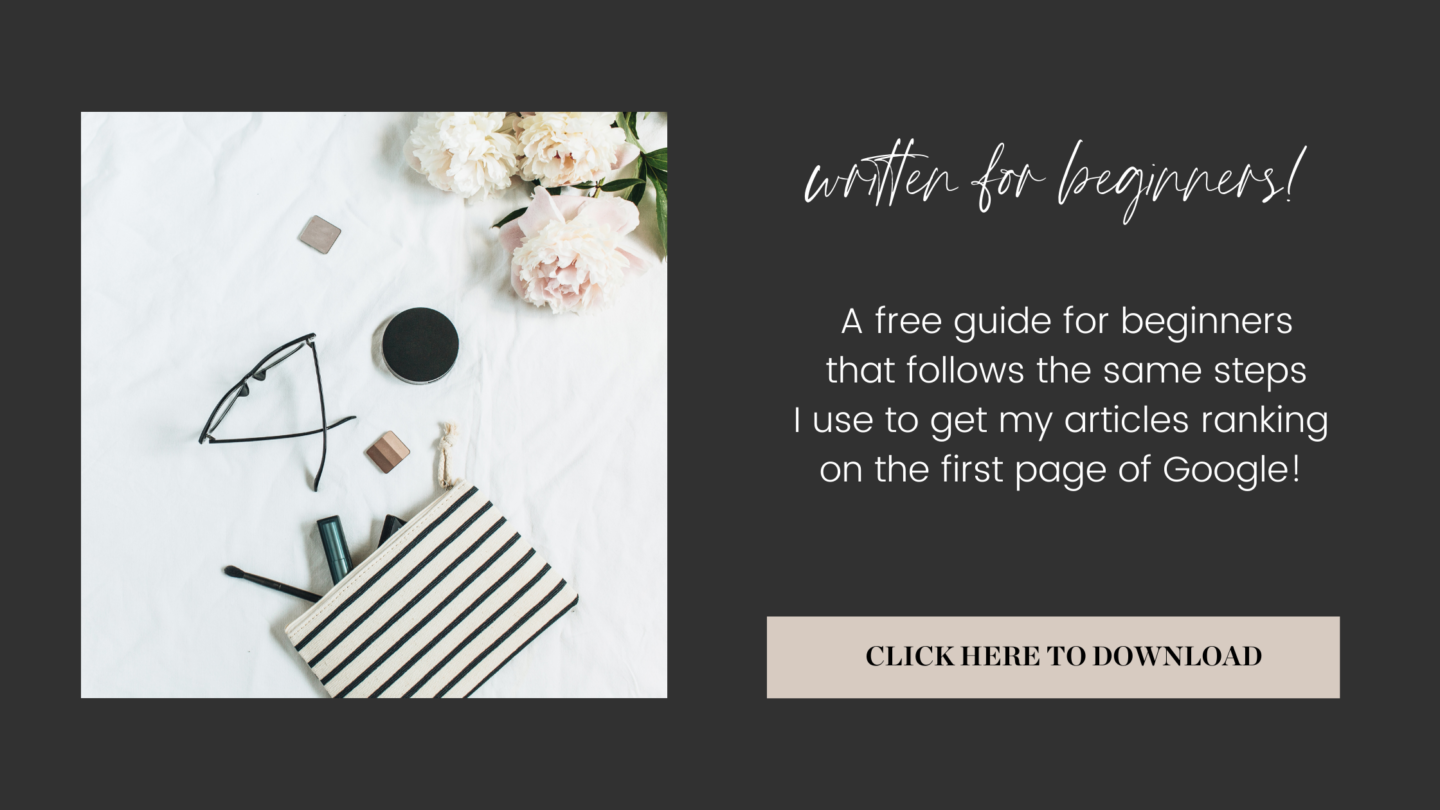
The Industry is in its Infancy
Last but not least, remember that this was an industry that started in 1994 – that’s just 26 years ago. It’s still in its infancy, with so much more room to grow and who knows how it will progress. In a world where social media is dominated by algorithms, and where we have no control over how long these apps will be around, a blog is YOURS. It is not subject to a changing algorithm (well, SEO is, but you can learn how to work with that), it’s not at risk of shutting down (remember Vine?) and your account won’t be deleted if you accidentally violate one of the T&Cs unintentionally.
I’m Convinced! How Do I Start?
Step 1: Choose a Name and Niche
The very first step to creating your very own blog is to decide what it will be called. It is what your blog will be referred to as, so it needs to be something you are comfortable with – and this could very well be your own name. If you are struggling with this point, there are loads of websites that you can refer to with advice on this. Here are a few articles that I came across:
- How to Choose a Domain Name – Smart Blogger
- How To Choose A Blog Name You Won’t Regret – BloggingWizard
- 7 Best Blog Name Generators – WP Beginner
Step 2: To Self Host or Not to Self Host?
The second thing that a new blogger needs to think about is whether they want to self host or not. If your intention is to start blogging as a hobby, just to try it out and see if it’s for you, then there is no need to go down the self-hosted route. You can quickly and easily start up a blog on free blog sites like WordPress.com, Medium or BlogLovin. This method won’t cost you a penny, but it does have various limitations. For starters, your URL won’t be custom. For example, if you decided to create your blog on Medium, your URL will be www.medium.com/YOURBLOGNAME. If you decide to go for WordPress.com (and not .org), it would be www.YOURBLOGNAME.home.blog.
Having your own domain is the more professional option and it gives a lot more control in terms of the design and how your site is optimised. But ‘what is a host’ you ask? Simply put, a host is where your site lives on the internet. If you choose to use one of the platforms mentioned above, your blog will have a home on the platform you choose to use. On the other hand, self-hosted means that you need to find a host to provide it that home, but it also fulfils the additional functions of providing 24/7 support, email functionality (and an email address will become important when it comes to building your email list), backups and so much more.
Assuming that you already know the subject matter of your blog, your niche and what you would like it to be called, it’s time to pick a host. In terms of recommendations, it’s only natural for me to talk about the one I already use and that is Siteground. Siteground is one of the best providers for hosting websites, and they have always provided me with top quality customer service, along with benefits like 100% up time reliability and daily backups, amongst others. The bad news about starting a self-hosted site is that it comes with a cost. This is the only downside in my eyes, but the costs are manageable.
Once you have selected your host provider, you should also purchase your domain name from them too for a small annual cost. Note: domain names are not included in the Siteground offer, but can be purchased from as little as £11.95 a year. There is a debate to be had about whether to purchase your domain name from your host or from a domain registrar, but if you are new to all this, it makes sense to do it all in one place. It is definitely possible to purchase your domain name from a separate registrar, but you will then need to point it to your web hosts’ DNS, making things unnecessarily complicated.

The image above shows the option you need to select on Siteground. After clicking on ‘WordPress Hosting’, you can choose which package is right for you and proceed to the sign-up page, where you can register your domain name and complete the payment.


Whilst on the payment page, I would also recommend adding the ‘domain privacy’ add-on, so that your personal information like address or telephone number is not made publicly available online. Once payment is made, you will be sent an email that requests you to confirm your new domain. From this point on, it becomes relatively straightforward. Simply follow the prompts to set up your WordPress.org site and login credentials – these are in addition to your Siteground login details. Once this is all set-up you’re ready to start building your website! Going forward, you can login to your brand new site using the URL www.YOURBLOGNAME.com/wp-admin.
Step 3: Download A Theme
You can select one of the free WordPress themes by selecting ‘Appearance’ from the menu on the left-hand side, but if you are willing to invest a little bit more in your blog, you can purchase some beautifully designed themes. This website theme was purchased from Pipdig. They have some beautiful themes available for purchase for as little as $59 – have a browse through each of the themes and see which one would work best for your website and niche. If none of these are to your liking, do not worry. There are thousands of themes available for purchase online on websites such as Etsy or Elegant Themes, amongst many, many others.
Step 4: Start Writing!
Once all the technical parts are done, you can start writing! My advice on this point is to always think about how you can add as much value as possible to your readers, in every possible way, and this will ensure that readers return to your site as it becomes a trusted resource for them. I personally believe that this is what makes blogs stand out from the crowd.
Step 5: Ongoing Learning
Within this article, I have only just scratched the surface on how you can start your blog in a very short time. Once you’ve started, there are plenty of ways how you can learn to make your website better and better. Ongoing learning is crucial to its success, especially as it is an industry that is constantly evolving. There is a reason that there are hundreds, if not thousands of websites on the subject of starting blogs. What I have provided in this article however, is exactly what I had to teach myself back in January 2018, to get this website off the ground.
If you are interested in learning more from the very beginning, here are some of the courses that I have purchased over the last 2 years, and they will definitely help to accelerate your learning curve. They all come highly recommended and were game changers for me in their own respective ways!
- SEO Secrets for WordPress Users: My biggest regret was not learning SEO from the beginning; it was always one of those ‘I’ll get round to it eventually‘ tasks. When I finally did get round to it and learnt how easy it actually is, I realised how much time I had wasted focusing on other things! After nailing SEO and consistently generating results, I put together my own SEO course that breaks down SEO to the very basics. I’m sharing everything you need to know about SEO and how my articles are optimised to appear in searches.
- Pinterest SEO Traffic Secrets: In addition to SEO, Pinterest is an excellent tool for increasing your blog traffic. This course taught me everything I need to know to get the most out of Pinterest and how I can use it effectively.
- Making Sense of Cents: This is a relatively new one for me, and I’ll admit I haven’t worked through all of it just yet, but it aims to teach students how to monetise websites through affiliate marketing. Whilst I am already familiar with this, I think it is a good way to ensure that I am covering all grounds.
So in short – IT IS NEVER TOO LATE TO START! I hope this article was informative and encouraged you that if this is something you have been wanting to do for some time, you should definitely go for it! If you do plan on following my 5-step guide to start your own website, please let me know by dropping me an email! I’d also love to know if you sign up to any of the additional learning resources linked – none of these are affiliates and it would be great to hear how you are finding them!
If this article has convinced you to start your own blog, be sure to check out the top 10 blogging mistakes I wish I never made, as well as the best cameras for bloggers and content creators!
Editor’s Note: If you would like to read more about my journey to self-employment, check out my article on why you should never give up on your dreams.
Don’t forget to pin this article if you found it helpful, and follow Dukes Avenue on Pinterest for more!
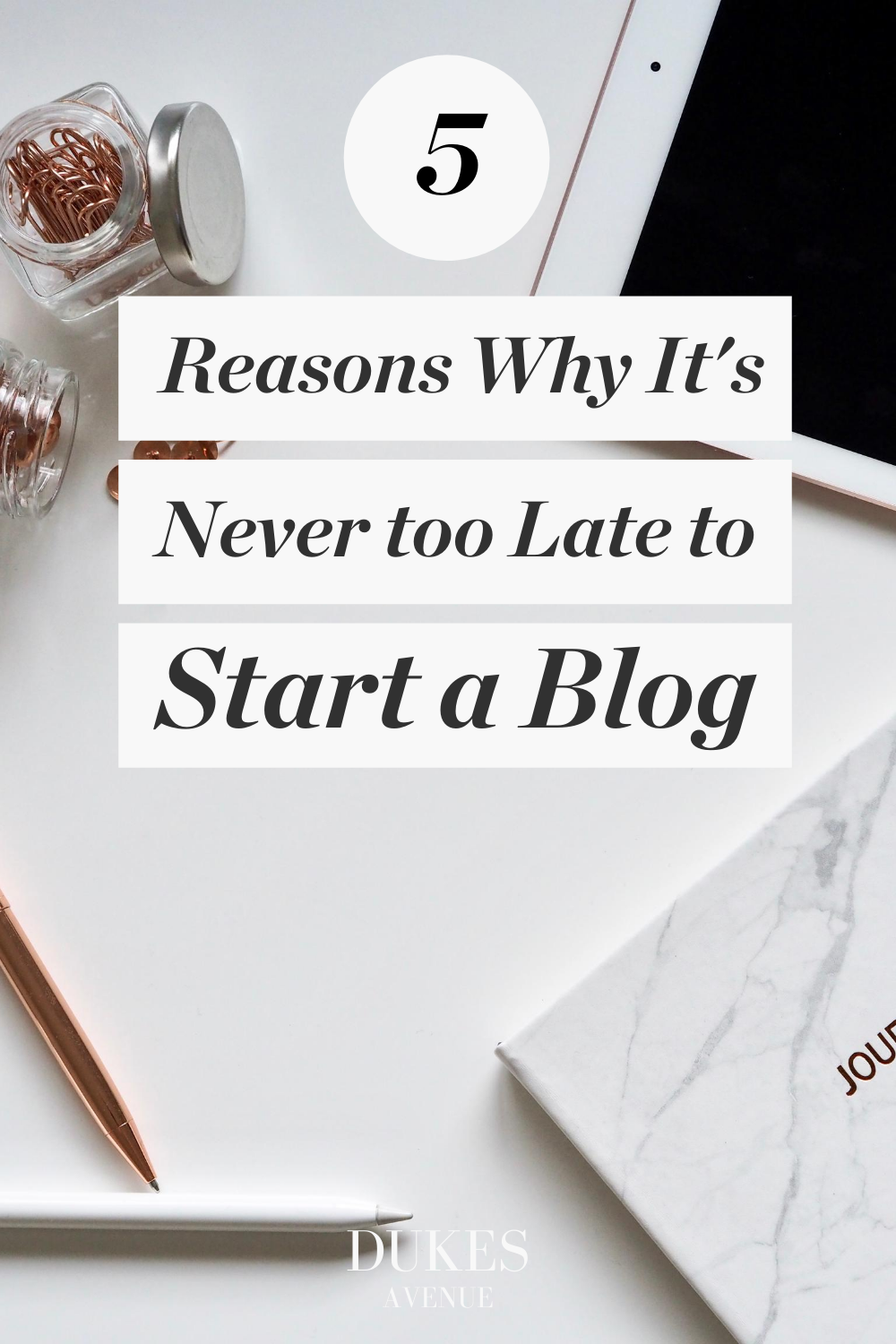
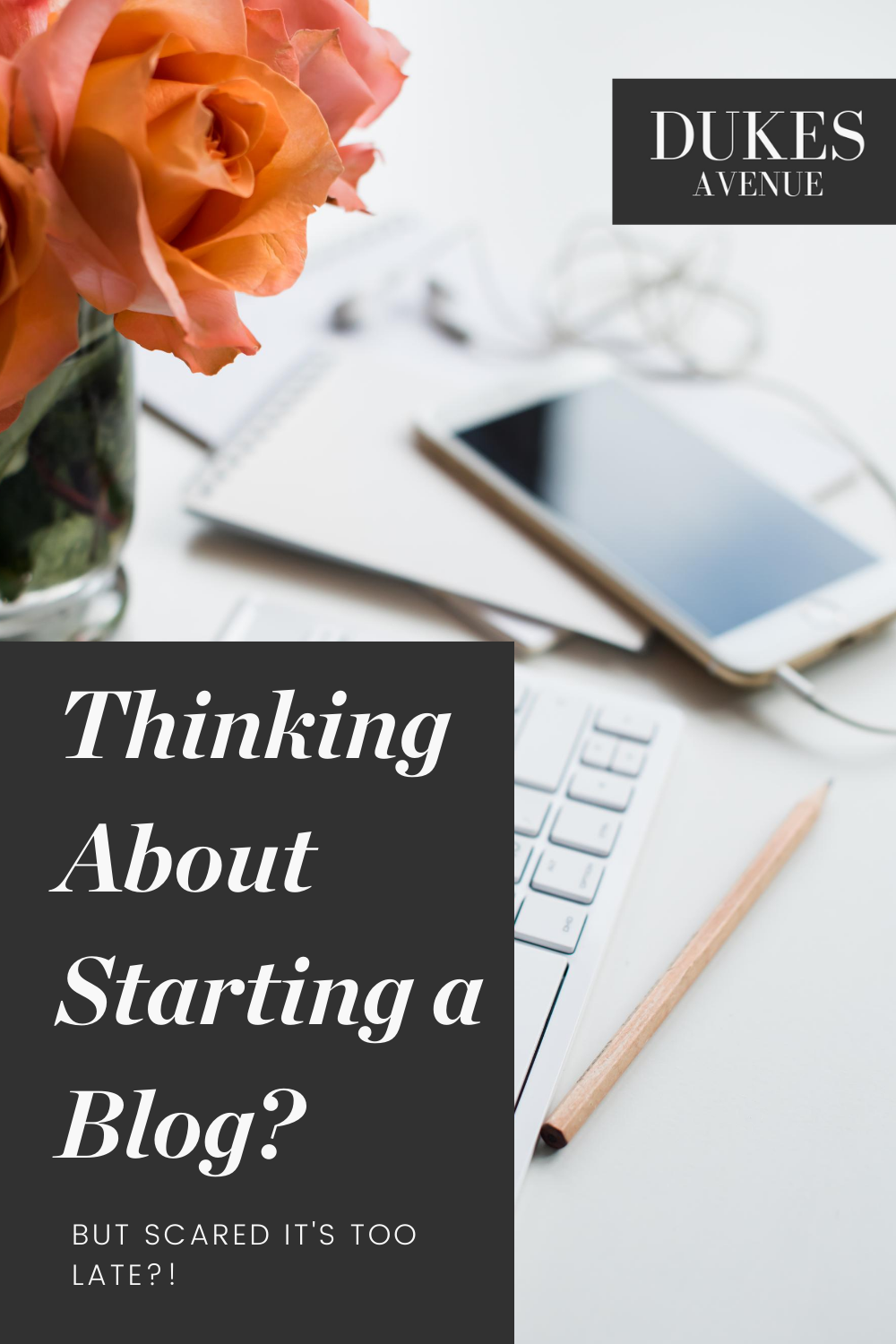
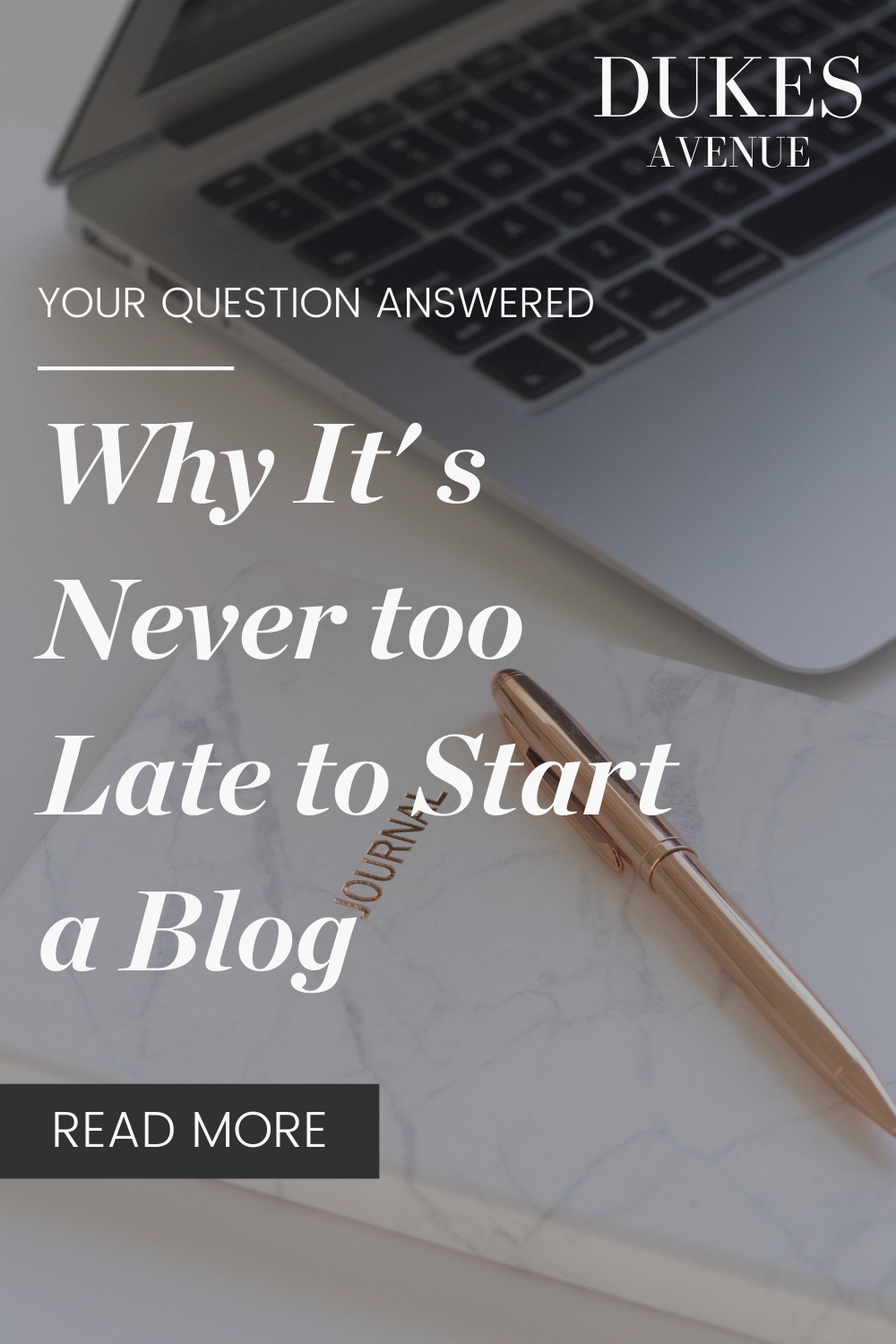

Sarah is a syndicated freelance writer and editor of Dukes Avenue. She founded Dukes Avenue in 2018 as a creative outlet while working at a London hedge fund. What initially started as a small blog has become a widely read luxury lifestyle online publication targeted at the modern woman, with content curated to inspire readers to live their best and most fulfilled lives. Sarah has lived in London, Malta, and, most recently, the United Arab Emirates and uses her travels and experiences to inspire much of the content.
-
Sarah Borg Barthethttps://dukesavenue.com/author/sarah-borg-barthet/
-
Sarah Borg Barthethttps://dukesavenue.com/author/sarah-borg-barthet/
-
Sarah Borg Barthethttps://dukesavenue.com/author/sarah-borg-barthet/
-
Sarah Borg Barthethttps://dukesavenue.com/author/sarah-borg-barthet/
